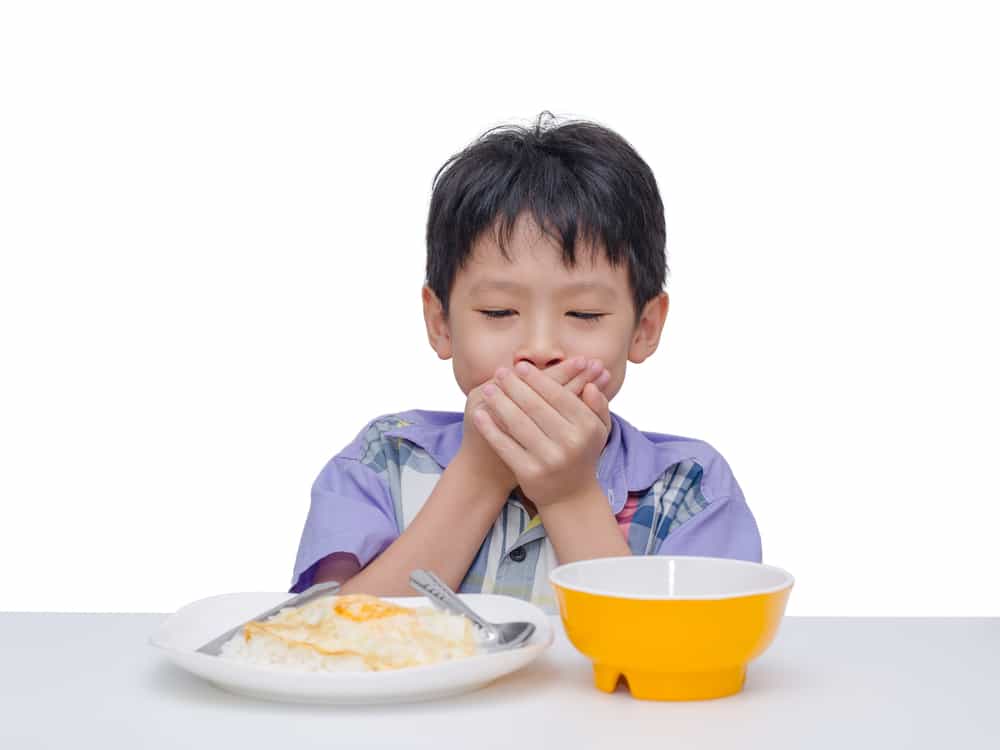Contents:
- Medical Video: The Truth About Fussy Eaters (Eating Disorder Documentary) | Only Human
- What is the proof that there is a connection between picky food and psychological health?
- Psychological disorders are twice as high in children who are picky about food
- What to do if your child is picky about food
Medical Video: The Truth About Fussy Eaters (Eating Disorder Documentary) | Only Human
Lots of children who don't like to eat vegetables. Or there are also children who are very choosy in choosing foods to eat. Recent research shows that picky food is not only a bad habit, but it is related to the psychological health of children.
Researchers from Duke Medicine in Durham, NC, found that how picky foods are related to psychological problems, such as anxiety, depression, and attention-deficit hyperactivity disorder (ADHD).
Because it generally happens, before the problem of picking food in these children is considered only as something normal which is part of the growth period of children. However, there are always questions from both the parents and the researchers themselves: Is picky food really a problem? "Picking the food here is not the case the child does not want to eat (for example) broccoli, but if the child only wants to eat certain foods.
What is the proof that there is a connection between picky food and psychological health?
Although these picky foods are common, there have been studies before this which began to indicate that picky foods are related to emotional, social, and physical aspects. From the results of these studies, it is important to know how severe it is selective eating which can cause psychological problems, where medical team handling may be needed to overcome this problem of picky food.
The researchers analyzed 917 children aged 24-71 months. Caregivers from these children were interviewed to find out how the children behaved when they were eating, doing activities, signs of possible psychological problems, and the situation where the children lived. This interview aims to find out whether it is true that picky foods can predict damage to psychological development in children.
Another study was conducted by asking parents of about 3400 children who were not in school to fill out questionnaires about their children's eating habits, signs of depression in children, ADHD or other psychological problems, and how sensitive their senses were. About 2 years later, the researchers re-evaluated these children.
Psychological disorders are twice as high in children who are picky about food
Apparently, indeed children who are picky about food are more likely to cause problems. This psychological damage can affect various kinds of things, starting from children's health, children's growth, children's social relations, and the relationship between parents and children. These children feel that no one believes in them, and parents feel that they are blamed about this problem.
Children who have a habit of picking food are likely to have signs of psychological problems two times higher than children who do not picky in choosing food. However, it does not mean that parents and children have conflicts that will directly affect the child's eating habits.
What to do if your child is picky about food
With the indication that children who are voters in choosing food can cause damage in psychological development, treatment is needed from both parents and doctors to overcome this.
This picky habit of food may occur because the child has bad food experience with certain types of food, which causes fear in the child when forced to eat the food, or try new foods. This can indeed happen, because humans do have the ability to reject foods that feel strange or that cause fear. This ability actually serves to avoid pain or food poisoning. However, if this ability is too excessive, it might cause problems. Can also, picky eating this happens because indeed the child has a very sensitive sense of taste so that the taste or texture of a particular food feels bad.
To overcome this problem of picky food, parents cannot force the child to eat anything. Subscribing to catering or continually ordering food from restaurants will also not help. Especially by punishing children if they don't want to eat. Similarly, giving gifts every time the child wants to eat.
Instead of doing the above, try treating children, such as:
- Teach children to be grateful for the food they have. Remind them that not all children have the ease of eating anything.
- Teach children not to be afraid to try new foods.
- Invite children in the cooking process. This experience can help children understand more about various types of food.
READ ALSO:
- Use of Salt that is Allowed in Your Child's Food
- Tips on Inserting Vegetables in Your Child's Food
- Tips for Children Not Addicted to Sweet Food












